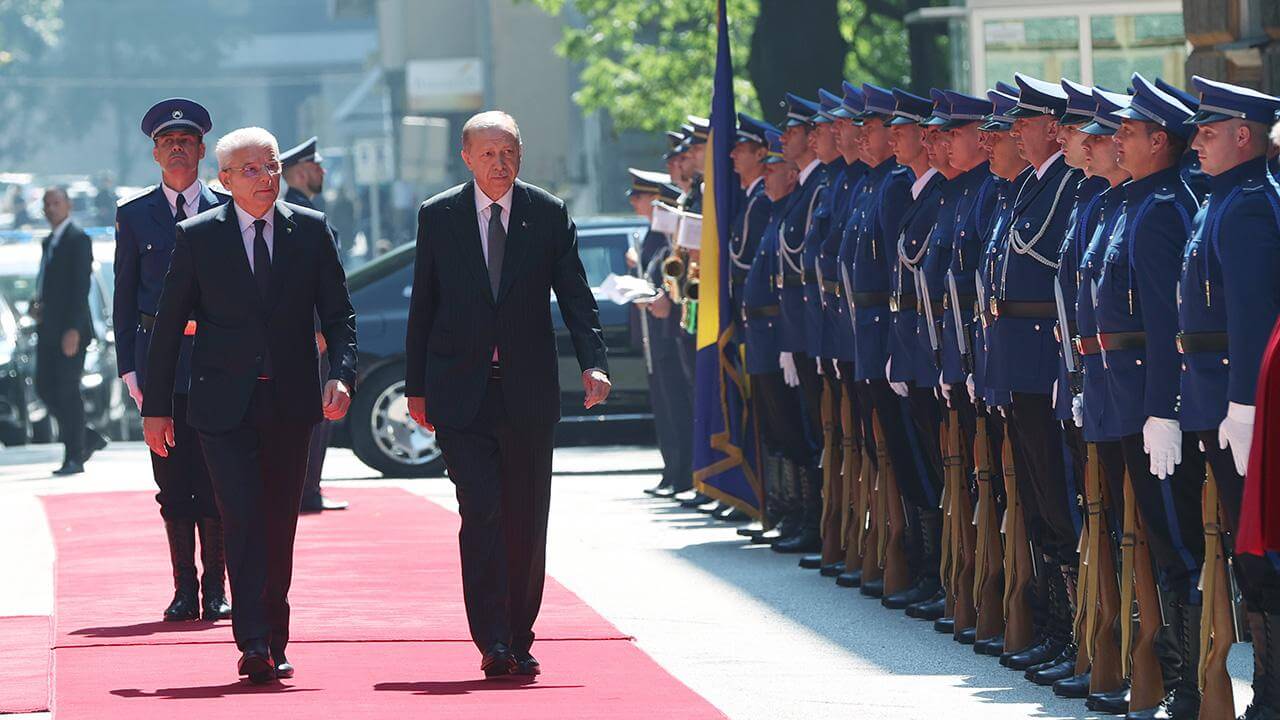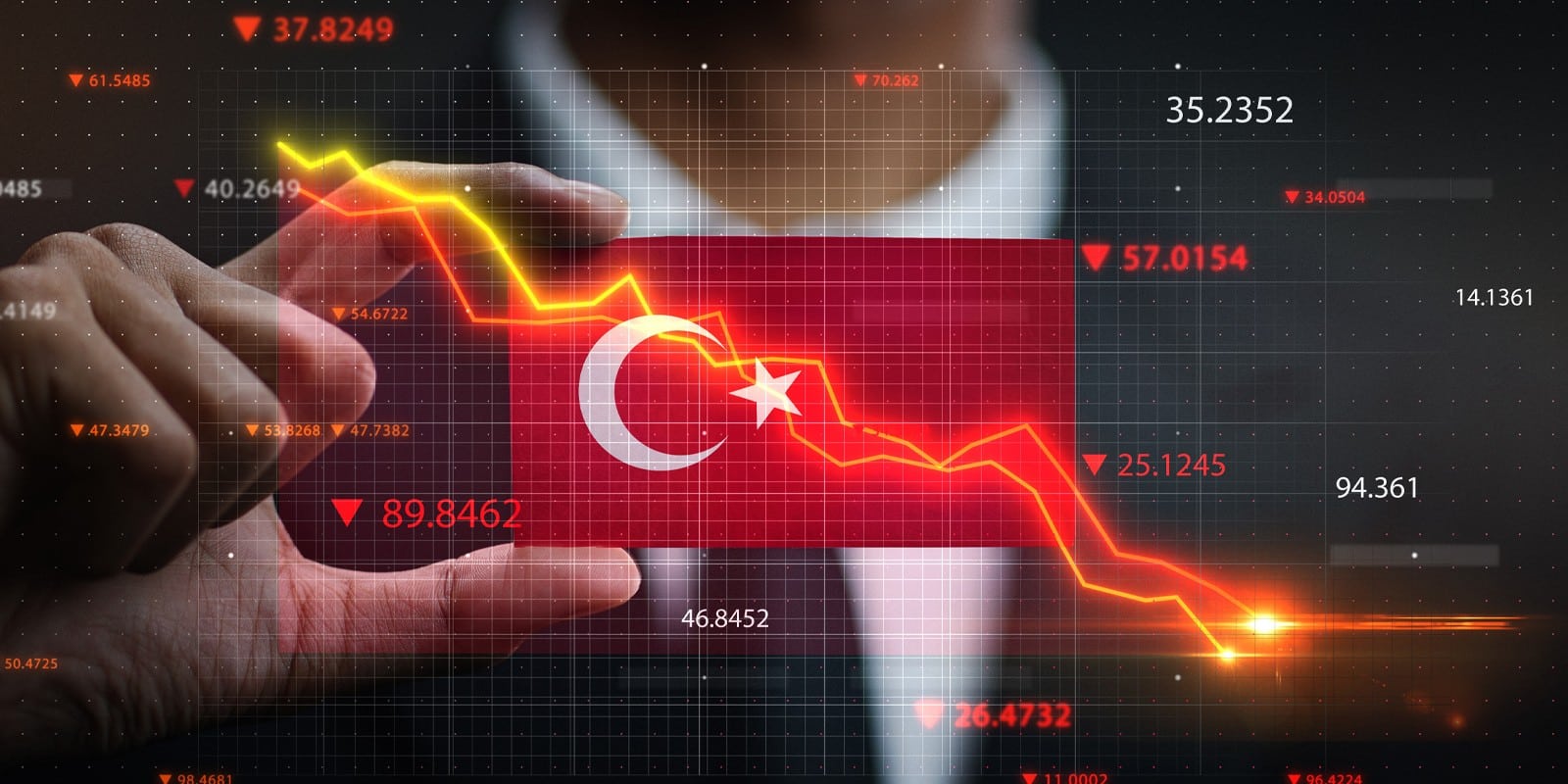Strengthening bilateral relations and reviving economic cooperation are high on the agenda of the Turkish president’s Erdogan tripartite tour of the Balkans, a region that has recently been plagued by multiple political stalemates.
Accompanied by a large delegation, President Recep Tayyip Erdogan arrived in Sarajevo, the capital of Bosnia and Herzegovina, on Tuesday before holding individual and inter-delegation meetings with the three-member Presidential Council of Bosnia and Herzegovina.
The board includes Bosnian member Sefik Dzaferovic, Croatian member Zeljko Komsic and Serbian member Milorad Dodik.
Addressing a joint press conference after the talks, Erdogan described relations with Bosnia and Herzegovina as “exceptional”, stressing his support for the country’s territorial integrity and stability.
For his part, Dzaferovic said that Turkey and Bosnia and Herzegovina have friendly relations and their historical and cultural ties are strong, adding that they want to further strengthen their relations.
He also said that plans are in place to expand bilateral trade to $1 billion (TL 18.23 billion) in the near period.
Dzaferovic also expressed BiH’s willingness to start passport-free travel with Turkey, a practice Erdogan said would soon come into effect.
Before going to Sarajevo, Erdogan said that Turkey is pursuing a policy that supports the stability and development of the Balkans and its process of integration into Euro-Atlantic structures.
“We will strive to find a solution to the political crisis in Bosnia and Herzegovina during our visit,” he said.
The Balkans: a priority for Turkey
The Balkans are a priority for Turkey, not only for political, economic and geographical reasons, but also because of its historical, cultural and human ties with the region.
Erdogan is expected to meet members of the Parliamentary Assembly’s House of Representatives and House of Peoples, the country’s highest legislative bodies, and attend a business forum later on Tuesday.
He will also visit the grave of Alija Izetbegovic, the country’s first Bosnian president, who died in 2003.
In recent years, the Balkan region has become an attractive market for Turkish investors thanks to its skilled workforce, business-friendly investment environment, and fiscal and financial incentives.
The region – which has deep historical and cultural ties with Turkey – is often described as Turkey’s gateway to the EU thanks to its geographical location.
After Bosnia and Herzegovina, the Turkish leader will travel to Serbia and Croatia respectively.
The three nations aim to improve their economic relations with Turkey, according to their officials.
Zdravko Marinkovic, head of the Bosnia and Herzegovina Chamber of Foreign Trade, said Erdogan’s Balkan tour was important for the region.
“Turkey invested $265 million in Bosnia and Herzegovina last year. Turkey is one of the most important investment powers in Bosnia and Herzegovina. The trading volume increased to around $600 million last year,” Marinkovic told Anadolu Agency (AA).
Marija Sepi, director of the Center for Europe of the Serbian Chamber of Commerce, said economic relations with Turkey are at the highest level.
“Economic relations between Turkey and Serbia have made great progress in recent years. Foreign trade volume reached $1.73 billion in 2021,” Sepi said.
In addition, imports from Turkey increased by 43%, she added.
“We have come a long way in terms of foreign trade volume and investment, but we are falling short of the real potential. Thanks to good political relations, the economic relations of the two countries are at their highest level,” Sepi said.
Sepi added that there are 699 Turkish companies registered in Serbia and these companies employ around 10,000 people.




Comments are closed